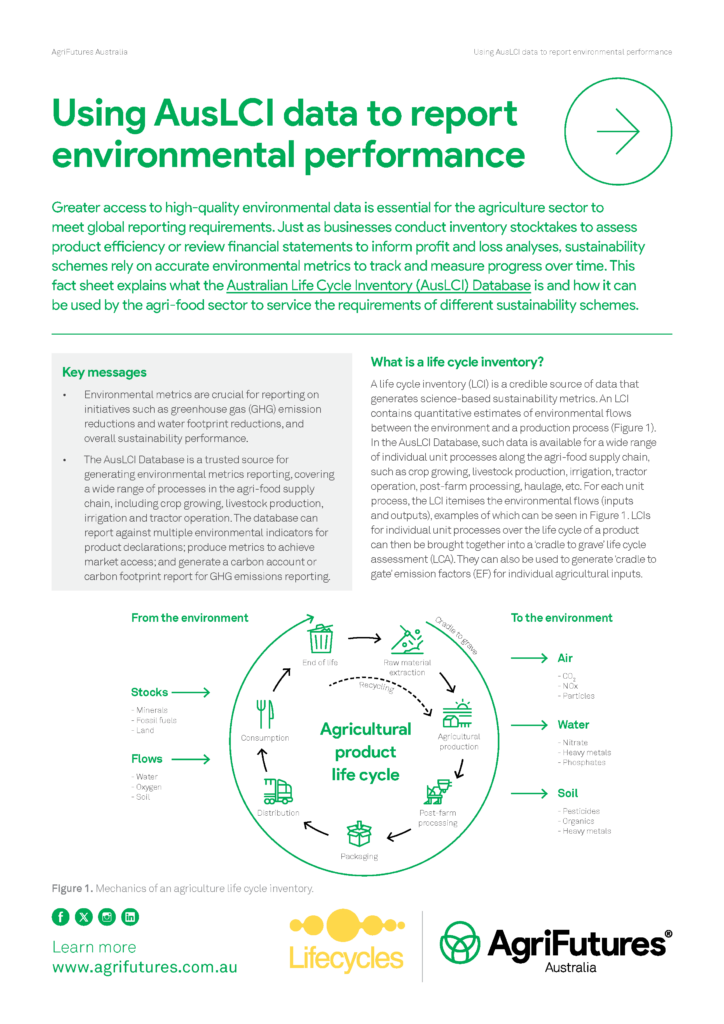Greater access to high-quality environmental data is essential for the agriculture sector to meet global reporting requirements. Just as businesses conduct inventory stocktakes to assess product efficiency or review financial statements to inform profit and loss analyses, sustainability schemes rely on accurate environmental metrics to track and measure progress over time. This fact sheet explains what the Australian Life Cycle Inventory (AusLCI) Database is and how it can be used by the agri-food sector to service the requirements of different sustainability schemes.
Key messages
— Environmental metrics are crucial for reporting on initiatives such as greenhouse gas (GHG) emission reductions and water footprint reductions, and overall sustainability performance.
— The AusLCI Database is a trusted source for generating environmental metrics reporting, covering a wide range of processes in the agri-food supply chain, including crop growing, livestock production, irrigation and tractor operation.
— The database can report against multiple environmental indicators for product declarations; produce metrics to achieve market access; and generate a carbon account or carbon footprint report for GHG emissions reporting.





